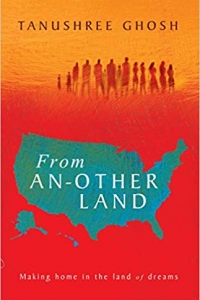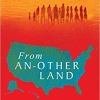
When I came to the US, fourteen years back, I did so in search of freedom. I wanted to be whomever I wanted to be, in every sense of the phrase possible. And the US didn’t disappoint. The US allowed me to become a lot of things that I couldn’t have in any way back in India. A lot of this has to do with the civic and economic infrastructure and law and order. The things we all imagine to fall into places by moving to a nation like the US. But that’s not all of it. As a woman particularly, it is hard now to trade this life of tremendously enhanced simplicity back. The energy saved from not having to debate temple entrance and purity can be expended in doing other things of pertinence. The blanket of safety that I need to really feel free, the US provides. The daily consternation, from small things to big, are non-existent.
But, the US also opened my eyes to what we are becoming as a race. My first exploding exposure to men and women from diverse nationalities caused me to realise how stupid we can be as a race, irrespective of the nation. I realised here how prosperity doesn’t necessarily open hearts or brains, and in fact, can often close them. I also realised how propaganda works everywhere. I realised that education is not awareness. And that awareness is a choice. But most importantly, I realised how we as a race, are wasting the tremendous potential we have at our disposal (even at the cost of lives) with petty bickering in which we let selfish, illogical insecurities flourish over common sense. This has very little to do with nationality and has a lot to do with greed and ignorance. Our fear of the unknown, our biases towards the unfamiliar, make us shout nationalism—without understanding what is really best for the nation or if really anything is ever best for any nation if it goes against the interest of the human race.
A picture is worth a thousand words they say. Let me try to paint a picture with examples. In the last months, ICE (the US Immigrations and Customs Enforcement) has raided Tigertown in Texas (primarily a welding community) and rounded up high number of immigrants who were working those jobs illegally. Several of them are now facing deportation or struggling to front bond money while unemployed after slogging for years in jobs that are simply lying vacant now. No legal immigrant, let alone American citizens or residents, want to work those jobs. They are too gruesome. So, as desolate faces without much education or resources get rounded up in courtrooms or get pushed out to places they are desperate to escape, the welding plants risk shutdown owing to worker shortage and consider moving the entire operations off-shore. And some folks will cheer in all this praising the tough policy enforcement that will allow ‘making of America great again’ by ensuring only American citizens hold American jobs.
In September 2018, US unemployment was marked at its lowest in five decades with over 6 million unfilled jobs (US Bureau of Labour Statistics). Imagine this against faces of folks who’d do anything for a job. Or engineers, software professionals, teachers and such who have the skill sets but no access. Or a labour force who aspire for higher skilled jobs but have no economical route to the right education to avail and instead of bridging that gap, are brainwashed into believing that somehow their outdated skill set will still remain viable to allow them the same conveniences which outsiders are coming in to snatch from them. They don’t understand that even if all doors are closed and no one is let in, they won’t be able to take a seat.
I don’t write this here to portray the US—or any nation for that matter—as flawed. On the contrary, my hope in sharing this is to enable viewing of issues through a human, not national, lens. I believe the US to be one of the most tolerant, advanced, multi-cultural, and welcoming home that can be found on the face of this earth. There is a reason why millions aspire to be Americans day in and out, and it is beyond just economics. And, as I have said on my op-eds several times, pointing out a flaw has nothing to do with allegiance and love for a nation. Fronting that argument has the same problematic nationalism behind it which might undo the human race soon.
I write the above here to point out just one example of the wasted opportunity for the humankind. We have figured out a path into space, but not through the borders here on this earth, even in the most advanced and resourceful of nations.
When I started writing this book I wanted to bring the human stories of acculturation following immigration into a new country, especially of the disadvantaged sections of the society, into light to identify the motivations and limitations borders cause. Then, as immigration to the US and immigration as a concept became a target in face of rising nationalism worldwide (the recent headlines in the US on H1B, H4, zero tolerance to name a few renderings of the same), the book slowly morphed into a manuscript exploring social issues in the US and the interplay of immigrants in such narratives. This book, through connected stories of people who have both legally and illegally immigrated to the US and have either chosen to stay or return, looks into all the dilemma and discontent around immigration through personal stories with one goal: through the struggles and ambitions that are very similar no matter who we are, the recognition of humanity. The most beautiful thing that traversing national borders did for me is clearing me of the baseless associations that were limiting me from opening my heart. I wrote this to celebrate the human race through an understanding of immigration using that learning because we need to reach the realisation as a race that we have much bigger issues to deal with than borders.
I wouldn’t have started writing anything, let alone a book, if not for my Chotomama (Subrata Sengupta) and Chotoma (Sobha Sengupta)—my uncle and grandmother respectively—who are my lifelong inspirations and the reasons I survived childhood. I couldn’t have kept writing, surviving adulthood, if not for my sister, Madhumanti Ghosh, who didn’t let me feel alone even on my darkest days. I would also like to thank my Cornell Professor, Noble Laureate Dr Roald Hoffman, who read every story in its crudest form as soon as I sent it his way and reverted with encouragement, liking them more than I did. The stories wouldn’t have morphed into a book without April Eberhardt who showed me a path at a time when I could see none in front of me. All through my journey with this manuscript, April stayed with me—providing guidance, encouragement, and solutions, and connected me to Laurel Leigh—my friend and freelance editor—who guided me through the quagmire that is developing a book. I would like to thank author Susan Breen, my mentor and the Algonkian Conference for support. Sourish Mitra, thank you for rendering a cover that exceeds the best of expectations. Dipankar Mukherjee, Indrani Ganguly and Rima Kar Ghosh of Readomania Publishing, my last salute is to you, for believing in this book and giving my stories a window to the world.
‘Recognise yourself in he and she who are not like you and me.’ ~ Carlos Fuentes
TANUSHREE GHOSH
2018
About the Author



Comments